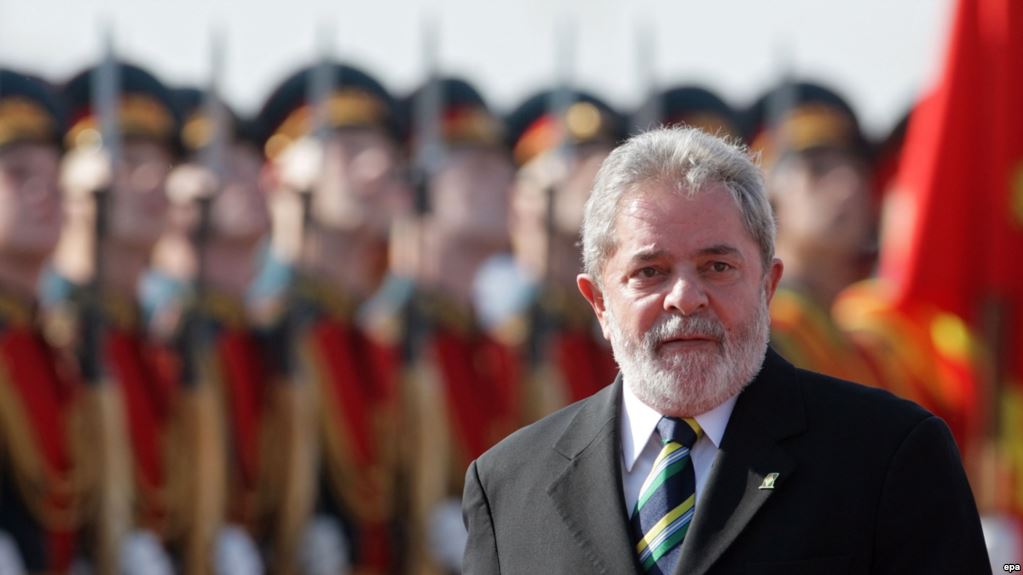Speaking with the Strategic Council of Foreign Relations, Hadi Alamifariman explained that the foreign policy of the president-elect of Brazil has three main axes.
“The first is da Silva’s desire for a strategy of South-South cooperation and the strengthening of Mercosur in the region, which is his first and most important agenda. The second issue is the development of Brazil’s participation in international organizations, active participation in peacekeeping operations, growth of presence in the military equipment market, and strengthening of bilateral cooperation agreements with other countries”.
Freeman added that every government based in Brazil has pursued these issues as a prestigious and consistent principle.
According to this expert, the third axis is related to new relations that Da Silva will probably initiate, which will be cooperation with Europe and other places and the promotion of the same previous relations with the United States.
Asked about about the relations between Brazil and the United States during Da Silva’s renewed presidency, he said that in the field of cooperation with the United States, it seems that trade exchanges with this country will continue; It should be noted that the difference between the Brazil and the United States is in the field of the World Trade Organization, information technologies and agricultural products such as ethanol and cotton, and because now China has also entered the market and competes with the United States, the role of Beijing in these fields will be important and can be discussed within the framework of BRICS area.
According to this expert, the political relations of the two sides depend on the upcoming developments.
Alamifariman explained that the Presidents of Brazil from all spectrums and at any point of time when they were in office had ups and downs relations with the United States, adding that of course commercial and economic relations should be separated from political relations.
The expert on Latin American issues explained that in the economic and commercial sphere, the first partner of the Americans in Latin America is Brazil and bilateral exchanges in the export and import of goods have always been at a high level.
“But in the political sphere, the relations of the parties depend on which faction has held power in Brazil; If the right wing was in power, the relations would be good, but if the left wing was at work, the relations would be cold.”
He also analyzed da Silva’s policies during his previous presidency and said that during the first term, he started his programs with a big poverty alleviation plan in Brazil and reduced poverty significantly. “Also, a kind of justice became dominant in that country and a very good sense of political nostalgia was formed in the perception of the Brazilian people.”
Alamifariman continued that “The evaluation of development researchers is based on the fact that one of the most successful periods of economic development in Brazil was the first period of Da Silva. The next president was Dilma Rousseff, who also succeeded in becoming president with Da Silva’s support, and Mrs. Rousseff’s success was mostly in the areas of human rights, support for oppressed women, and social movements.
This expert explained about the inauguration of Jair Bolsonaro, da Silva’s predecessor. “When Bolsonaro became president, he succeeded in winning the votes of the people with the support of the majority of the people and citing the failure of the Labor Party in the issue of exposing corruption in this party and the story of the Petrobras company. Bolsonaro was named the Trump of Latin America. His most important position and performance was concerning refusing to take vaccinations in Brazil, which led to the death of 600,000 people. He also believed in the freedom to carry weapons in the case of negotiations related to weapons.
Alamifariman said about the impact of Da Silva’s re-victory on the leftist countries of Latin America region that “Currently, there are 14 leftist countries in South America that are supporting the culture of leftism. Of course, it should be noted that we have two types of left wing in this region; One faction is inclined to discuss human rights, peace and democracy, but the other faction has an authoritarian and undemocratic view that has prevailed in countries such as Cuba, Nicaragua and Venezuela.”
Stating that the leftists in the region are in the same camp, he added “But the difference in views is evident, and Da Silva’s views will probably be close to the views of the new presidents of Chile and Colombia.”
The expert on Latin American issues finally said about the possible policy of the new president of Brazil towards Iran that “probably in the new term, relations with Iran will be better and more balanced than during Bolsonaro’s term, but these relations will probably not be like the first term of Da Silva.”










0 Comments